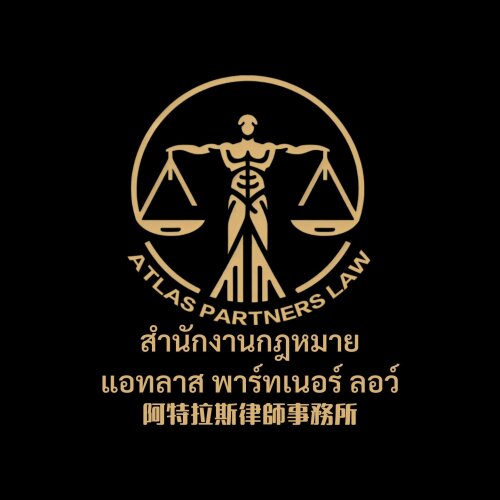About Funds & Asset Management Law in Chiang Mai, Thailand
Funds and asset management in Chiang Mai, Thailand involve a range of financial and legal services related to the professional management of investment funds and assets on behalf of individuals, businesses, and institutions. The legal framework ensures transparency, protection for investors, and compliance with both local and international standards. This sector covers activities such as setting up investment funds, managing mutual funds, private wealth management, real estate investment trusts (REITs), and the administration of trusts or estates.
Chiang Mai, as a growing business and financial center in northern Thailand, has seen increased interest from both local and international investors. Understanding the local laws and regulations is essential for effective management and legal protection. Legal professionals specializing in funds and asset management guide clients through the complexities of relevant laws, regulatory standards, and best practices.
Why You May Need a Lawyer
Seeking legal advice in funds and asset management can be crucial in various situations, including:
- Establishing an investment fund or company in Chiang Mai
- Navigating regulatory compliance with the Securities and Exchange Commission (SEC) of Thailand
- Managing assets on behalf of family offices, trusts, or institutions
- Handling disputes involving fund management, such as mismanagement or breach of fiduciary duties
- Facilitating mergers, acquisitions, or restructuring of asset management firms
- Drafting and reviewing contracts with fund managers, custodians, or investment advisors
- Ensuring tax efficiency and compliance with Thai tax laws
- Addressing concerns related to cross-border investment and the repatriation of funds
- Advising on the legal implications of crypto assets or new digital investment products
- Protecting investor rights and representing clients in regulatory or court proceedings
Local Laws Overview
Funds and asset management in Chiang Mai are governed by national Thai laws, mainly under the purview of the Securities and Exchange Commission (SEC) and the Bank of Thailand. Key legal aspects include:
- Regulator: The SEC regulates mutual funds, private funds, REITs, and other investment schemes. Asset management companies must be licensed and meet strict capital and operational Criteria.
- Foreign Investment: There are restrictions and reporting requirements for foreign investors and fund managers. Certain fund structures may have limitations on foreign shareholding and operational scope.
- Compliance: All funds must comply with anti-money laundering (AML) and know your customer (KYC) regulations, as well as reporting requirements to local authorities.
- Taxation: Tax treatment depends on the type of fund or asset and the residency of investors. Double taxation agreements with other countries may apply.
- Trusts and Estates: Thailand does not have its own trust law for private purposes, but certain structures can be established under specific legislation for collective investment schemes.
- Investor Protection: Regulations provide for disclosures, transparency, and regular reporting to protect investor interests.
- Dispute Resolution: Disputes may be settled through negotiation, arbitration, or court proceedings. Specialized tribunals or financial courts may have jurisdiction in some cases.
Frequently Asked Questions
What types of investment funds are available in Chiang Mai, Thailand?
There are various types, including mutual funds, private funds, provident funds, property funds, REITs, and specialized investment schemes regulated by the SEC.
Do I need a license to offer asset management services in Chiang Mai?
Yes, asset management companies and fund managers must be licensed by the SEC and comply with strict eligibility and operational requirements.
Can foreigners invest in Thai funds or set up asset management companies?
Foreigners can invest in many Thai funds, subject to local restrictions. Setting up an asset management company as a foreigner involves additional regulations, especially regarding shareholding and company structure.
What legal protections are available for investors?
Thai laws require disclosure of important information, regular reporting, and provide mechanisms for dispute resolution to protect investor interests.
How are funds and assets taxed in Thailand?
Taxation depends on the investor’s residency, the fund’s structure, and the type of assets managed. Capital gains, dividends, and interest may be subject to withholding tax or other tax obligations.
What documents are needed to set up a fund or asset management service?
Typically, you need a business plan, registration documents, proof of capital, compliance policies, and relevant agreements. Legal advice is valuable in preparing and reviewing these documents.
What are the main regulatory bodies?
The Securities and Exchange Commission of Thailand is the primary regulator, along with the Bank of Thailand for certain financial activities.
Can disputes about fund management be resolved in Chiang Mai?
Yes, disputes can be handled locally through mediation, arbitration, or litigation, depending on the case and the contracts involved.
Is it possible to invest in digital assets through asset management companies?
Digital assets and cryptocurrencies may be offered by licensed entities under supervision of the SEC, subject to specific regulations and licensing.
What are the most important legal risks to consider?
Key risks include non-compliance with local laws, regulatory changes, contract breaches, mismanagement, and issues with cross-border investments. Legal counsel can help mitigate these risks.
Additional Resources
- Securities and Exchange Commission (SEC) Thailand: Oversees funds and asset management regulations.
- Bank of Thailand: Regulates certain financial institutions and cross-border transactions.
- Revenue Department: Provides information on taxation of investment and asset income.
- Chiang Mai Chamber of Commerce: Offers networking and information services for businesses in Chiang Mai.
- Thai Investors Association: Promotes investor education and protection.
- Professional legal and accounting firms in Chiang Mai with experience in funds and asset management.
Next Steps
If you need legal assistance in funds and asset management in Chiang Mai, consider the following steps:
- Assess your needs - Whether you are setting up a fund, investing, or dealing with compliance, clarify your goals.
- Consult a local lawyer - Choose a legal professional with expertise in funds and asset management law in Chiang Mai and familiarity with SEC regulations.
- Prepare your documents - Gather relevant financial, business, and identification documents to smooth the legal process.
- Stay informed - Keep up to date with changes in local laws and regulations affecting your investments and management.
- Engage with professional advisors - In addition to legal counsel, consider consulting accountants and financial advisors to ensure a comprehensive approach.
Professional legal advice can help you navigate complex regulations, protect your investments, and ensure that your funds or assets are managed in compliance with Thai law.
Lawzana helps you find the best lawyers and law firms in Chiang Mai through a curated and pre-screened list of qualified legal professionals. Our platform offers rankings and detailed profiles of attorneys and law firms, allowing you to compare based on practice areas, including Funds & Asset Management, experience, and client feedback.
Each profile includes a description of the firm's areas of practice, client reviews, team members and partners, year of establishment, spoken languages, office locations, contact information, social media presence, and any published articles or resources. Most firms on our platform speak English and are experienced in both local and international legal matters.
Get a quote from top-rated law firms in Chiang Mai, Thailand — quickly, securely, and without unnecessary hassle.
Disclaimer:
The information provided on this page is for general informational purposes only and does not constitute legal advice. While we strive to ensure the accuracy and relevance of the content, legal information may change over time, and interpretations of the law can vary. You should always consult with a qualified legal professional for advice specific to your situation.
We disclaim all liability for actions taken or not taken based on the content of this page. If you believe any information is incorrect or outdated, please contact us, and we will review and update it where appropriate.















